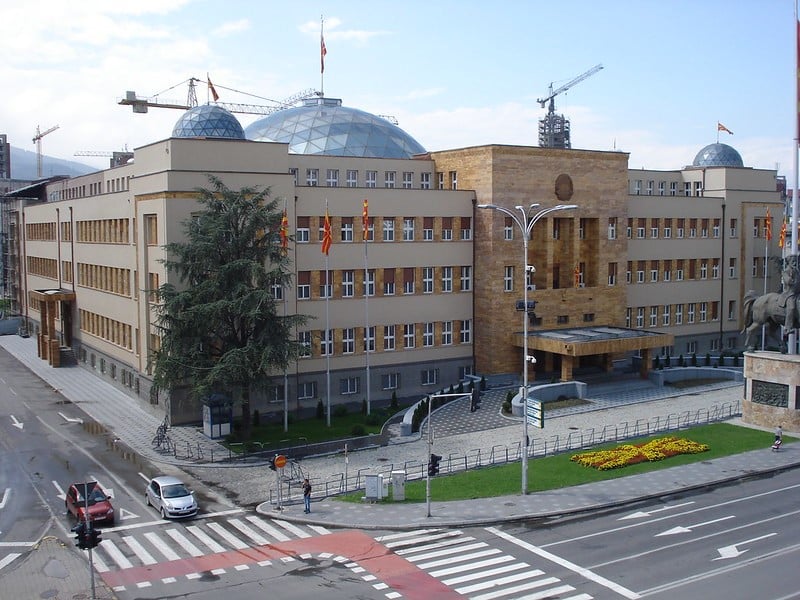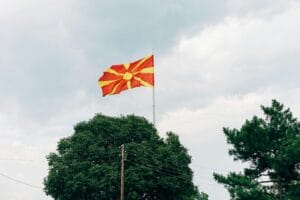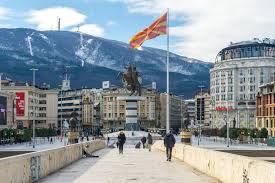On the 16th of February the North-Macedonian parliament voted to dissolve itself after prime-minister Zoran Zaev (Social Democratic Union of Macedonia) resigned a little over a month ago and promised that new parliamentary elections would be held on April 12th . The resignation of Zaev came after French president Macron, with the support of Denmark and the Netherlands, opposed the opening of EU-north Macedonian membership talks in October 2019. France vetoed the North-Macedonian and Albania accession to the EU because Macron believed that before further expansion can occur the enlargement process needed to be reformed to make it more efficient.
A new EU accession process
In a bid to revive the candidacy bids of North Macedonia and Albania countries, the European Commission proposed an overhaul of the expansion process on the 5th of February. The new plan puts the emphasis, among other things, on the “fundamentals” when assessing candidate countries, meaning that it will focus on issues such as the rule of law, the functioning of democratic institutions and the economy of a country. Interestingly, the new plan does not focus on new legislation.
Besides “fundamentals”, the new plan focusses on six other thematic clusters which are; internal market, competitiveness and inclusive growth, green agenda and sustainable connectivity, resources, agriculture and cohesion, and external relations. All these “chapters” as the European Commission calls them will be open for negotiations as a whole. Negotiations on the fundamentals will be opened first and will be closed last, setting the pace for the rest of the negotiations. The plan proposes that within a year a candidate country should be fully dependent on the progress of the reforms.
The plan also gives the European Commission more say and makes it easier to stop or reset negotiations and freeze funds when necessary. Since the new proposal, president Macron said that France is ready to lift its opposition to the opening of EU accession negotiations with North Macedonia and Albania if the European Commission’s report on the countries, which is set to be published in march, states that “the results are positive and confidence is established”.
Critiques on Macron’s veto
When president Macron vetoed the accession talks in October 2019, he faced backlash from German Chancellor Angela Merkel, the Visegrad group (Poland, Hungary, Czech Republic and Slovakia) and other European leaders. The Visegrad group accused president Macron of undermining the European Commission and warned that “further delay in making the positive decision [accession talks] will cause a serious deterioration of the instability in the region and will to a large extent limit our [Visegrad group] ability to take an active role in our own neighborhood.” Angela Merkel reiterated that talks with North Macedonia and Albania is a “geopolitical necessity”. Two of the main arguments for starting the talks are that North Macedonia and Albania have already improved their democracies and rule of law which should at least earn them the opening of talks. Second, rival powers such as Russia, Turkey and China will only increase their influence in the Balkan region which could then influence the EU’s neighborhood. This can only be countered by bringing the Balkan countries closer to the EU.
Two new bills
In a bid to increase their chances of starting talks with the EU, the North Macedonian parliament passed two new bills just before it dissolved. The first bill was on defense with the purpose of aligning North Macedonia’s legislation with that of NATO by incorporating its collective-security principles. The second bill has to do with the prosecution process. This bill will give back control over major corruption and organized crime cases to the public prosecution office. Before, these cases were handled by a special prosecutor’s office which became the subject of rivalry between the Social Democrats and the main conservative opposition. Therefor the office was dismantled last year.
Expectations for the new election
Interim prime-minister Oliver Spasovski (Social Democratic Union of Macedonia) has warned that the upcoming election will be the “dirtiest ever”. In this election Europhiles will be going head to head with nationalists. He stated: “I’m sure that this election campaign will be one of the dirtiest parliamentary elections so far in North Macedonia. I’m sure that fake news and media propaganda will be part of day-to-day life during the elections.” He continued by urging the EU to start negotiations before the April 4th elections because “the failure [of the EU] to make the right decision at the right time only stimulates the people to lose faith in the European perspective”. He is afraid that this would lead people into the arms of the nationalist VMRO-DPMNE, who were also opposed to the passing of the two defense and prosecution bills.
Sources: EURACTIV 1 / EURACTIV 2 / Al Jazeera / Reuters / EURONews / EU Observer / Radio Free Europe / European Commission / MYNorthWest
Photo: Pixabay



